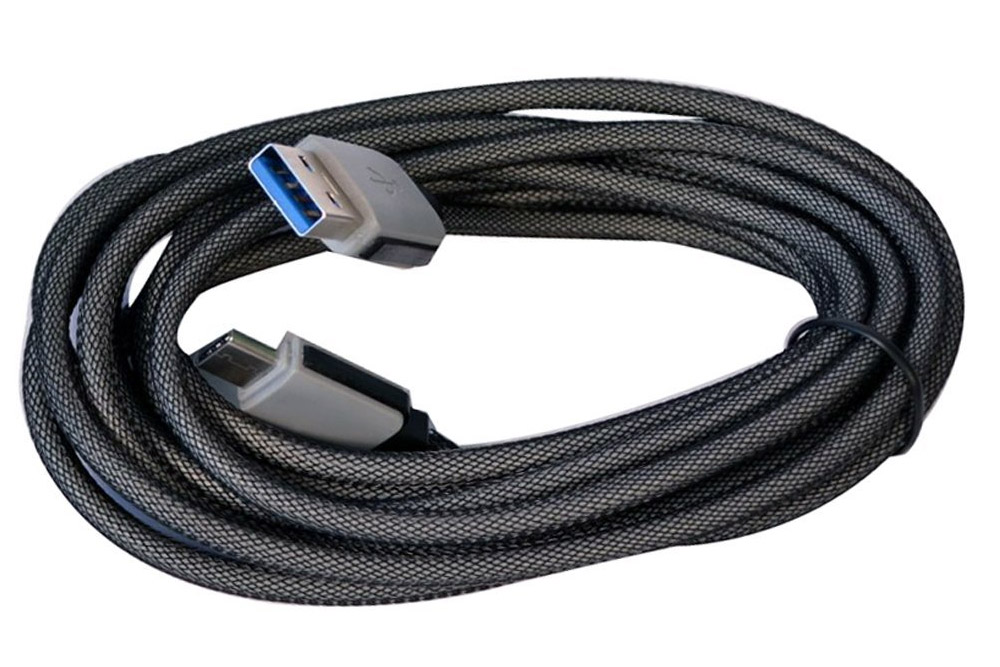-
Tips for becoming a good boxer - November 6, 2020
-
7 expert tips for making your hens night a memorable one - November 6, 2020
-
5 reasons to host your Christmas party on a cruise boat - November 6, 2020
-
What to do when you’re charged with a crime - November 6, 2020
-
Should you get one or multiple dogs? Here’s all you need to know - November 3, 2020
-
A Guide: How to Build Your Very Own Magic Mirror - February 14, 2019
-
Our Top Inspirational Baseball Stars - November 24, 2018
-
Five Tech Tools That Will Help You Turn Your Blog into a Business - November 24, 2018
-
How to Indulge on Vacation without Expanding Your Waist - November 9, 2018
-
5 Strategies for Businesses to Appeal to Today’s Increasingly Mobile-Crazed Customers - November 9, 2018
‘Dangerous’ USB cable found to fry gadgets it’s connected to
Well, Surjtech, in its infinite wisdom, miswired the cable, with Leung writing, “Vbus and Gnd are switched”.
Advertisement
When Leung plugged it in and powered his devices on, he found that not only had his Chromebook Pixel’s USB ports been completed fried, making them unusable, but he’d also lost two USB power analyzers that were attached to the same line.
Benson Leung, the Google engineer who moonlights as a tester of dodgy USB Type-C cables, has sadly performed his last act of tech vigilantism-at least for now. He wrote on Monday that a badly wired SurjTech cable had fried his test equipment, including his Pixel: “I am very unhappy, and this is going to affect how quickly I get through cables and other accessories in the short term since my computer is dead”.
As well as being reversible, USB Type-C is compliant with USB 3.1 and, as such, is cable of carrying not only data, but power.
Benson Leung’s good intentions have finally caught up with him, after the Google engineer launched a crusade against bad USB-C cables in late 2015. No amount of software recovery could revive the EC. In his scathing Amazon review, Leung explains that he plugged the cable into his Google Chromebook Pixel and a pair of USB sniffing devices that analyse voltage and current flowing along USB cables.
Upon further analysis, Leung found that the cable had killed the Chromebook’s embedded controller, a chip that manages tasks such as keyboard initialisation, USB charging, and reading temperature sensors. Leung said he will be contacting Surjech in an attempt to find an explanation, warning other Amazon shoppers that the cable is “fundamentally dangerous” and completely unfit for use. The GND pin on the Type-A plug is tied to the Vbus pins on the Type-C plug. But as more and more roll out and we all aren’t able to rely on our old stash of cables anymore, it’ll be tempting to try and pick up new Type-C ones on the cheap. The problem is that a lot of smaller manufacturers have been reusing old components from microUSB and Type-A cables, then just slapping a new plug on them. Although the technology is yet to go truly mainstream, it will become a lot more popular in the next year and it is inevitable consumers will begin to kill their hard-owned gadgets if flawed cables remain on sale.
Advertisement
While it’s unfortunate the Leung’s laptop had to effectively bite the dust, this is exactly the kind of proof we need that bad cables can cause major issues.




























